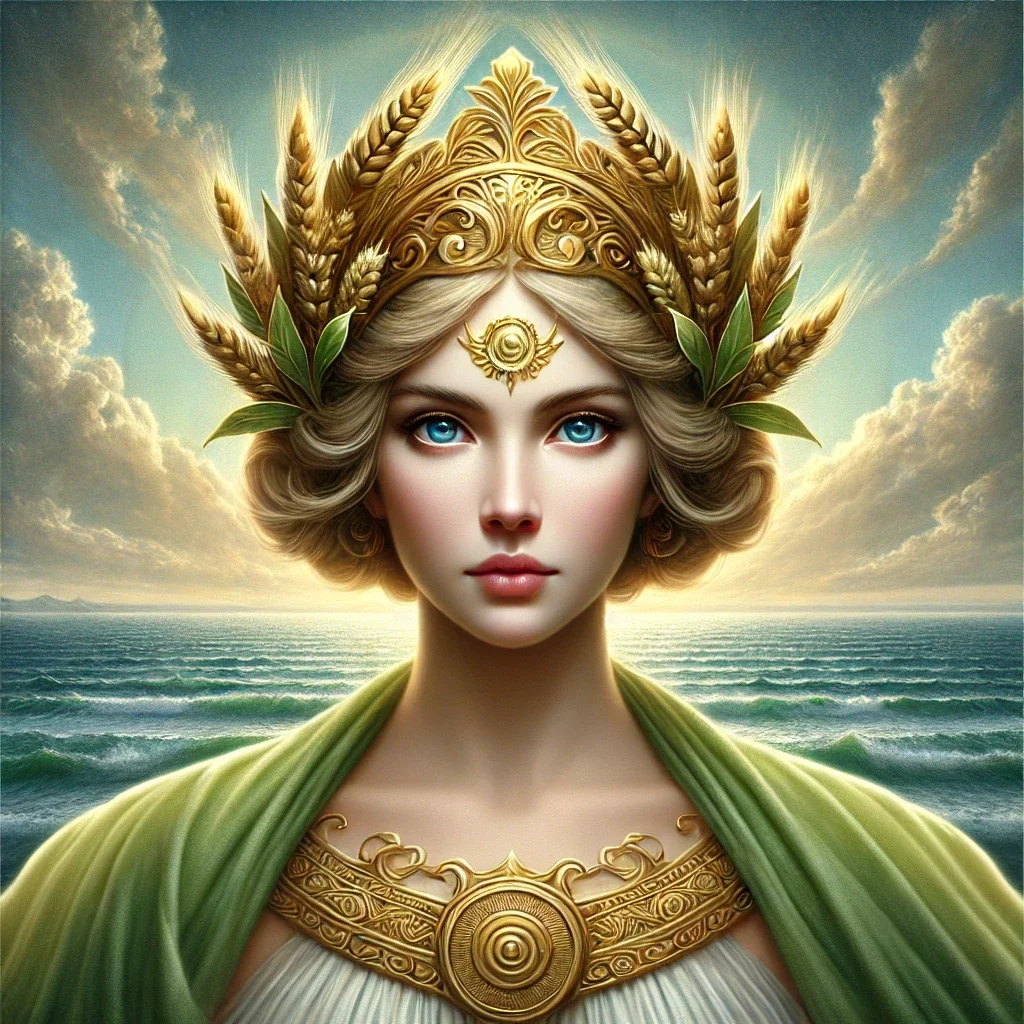Hera, the queen of the Greek gods, is one of the most prominent figures in ancient mythology. Revered as the goddess of marriage, women, family, and childbirth, Hera’s influence spanned both divine and mortal realms. While often depicted as a powerful yet complex figure, her stories illuminate the dynamics of power, jealousy, and loyalty in the Greek pantheon. This article delves into Hera’s historical significance, her mythological tales, and the rituals surrounding her worship.
Historical & Cultural Background
Hera’s origins trace back to the early days of ancient Greece, where she was venerated as a central deity in the Olympian pantheon. Born to the Titans Cronus and Rhea, she was both sister and wife to Zeus, the king of the gods. Hera’s worship can be dated back to the Mycenaean era (1600–1100 BCE), as evidenced by early inscriptions referencing her name.
Hera in Different Eras
- Mycenaean Period: Archaeological findings, including Linear B tablets, reveal that Hera was worshipped as a mother goddess during this era.
- Classical Greece: By the classical period, Hera’s role had evolved into the protector of marriage and the upholder of marital fidelity.
- Hellenistic and Roman Periods: Her influence extended into Roman culture, where she was equated with Juno, further cementing her status as a goddess of marriage and childbirth.
Hera’s worship was prominent in key Greek cities such as Argos, Samos, and Olympia, where temples were erected in her honor.
Myths & Legends
Hera’s mythology is rich with tales that reveal her strength, determination, and complexity. As the wife of Zeus, her narratives often intertwine with his, highlighting themes of fidelity, jealousy, and power.
Hera’s Marriage to Zeus
One of the central myths of Hera involves her courtship and eventual marriage to Zeus. Initially reluctant to marry her brother, Hera was wooed by Zeus’s persistence and cunning. Their union symbolized the sanctity of marriage but was fraught with challenges due to Zeus’s infidelities.
The Labors of Heracles
Hera’s jealousy of Zeus’s illegitimate offspring led to her enmity with Heracles (Hercules). She played a pivotal role in his twelve labors, often creating obstacles to test his strength and resolve.
The Golden Apple of Discord
Hera’s involvement in the events leading to the Trojan War is another notable tale. She, along with Athena and Aphrodite, competed for the golden apple inscribed with “To the Fairest.” Paris’s choice of Aphrodite over Hera and Athena fueled her animosity toward Troy.
Symbolism
Hera is deeply symbolic of marriage, fidelity, and the sanctity of the family unit. Her representation often carries both divine majesty and human flaws, reflecting the complexities of these themes.
Symbols Associated with Hera
- Crown or Diadem: Represents her status as the queen of the gods.
- Scepter: Symbolizes authority and power.
- Peacock: A primary symbol of Hera, the peacock’s eyes are said to represent her watchful nature.
- Cuckoo Bird: Associated with the story of Zeus’s courtship of Hera.
Associated Objects, Animals, or Plants
Several objects, animals, and plants are closely linked to Hera, each carrying unique symbolic meanings.
Sacred Animals
- Peacock: The peacock’s vibrant plumage is a reminder of Hera’s divine beauty and omniscient vigilance.
- Cow: Symbolizing nurturing and motherhood, the cow reflects Hera’s role as a protector of women and children.
Sacred Plants
- Pomegranate: A symbol of fertility and abundance, often associated with Hera’s role in marriage and family.
- Willow Tree: Found near her temples, it represents grace and resilience.
Powers and Attributes
Hera possessed formidable powers and attributes that made her both revered and feared by gods and mortals alike.
- Divine Authority: As queen of the gods, Hera wielded significant influence over Olympus.
- Protector of Marriage: She was the ultimate guardian of marital fidelity and the sanctity of wedlock.
- Punishment and Retribution: Hera was known for her fierce response to betrayal, particularly targeting Zeus’s lovers and illegitimate offspring.
- Blessings for Women: Hera granted protection and guidance to women, particularly during childbirth.
Worship Practices & Rituals
Hera’s worship was a vital part of ancient Greek religion, with festivals and temples dedicated to her across the Hellenic world.
Key Temples
- Heraion of Argos: One of the oldest and most important temples, located in Argos.
- Temple of Hera on Samos: A magnificent structure renowned for its architectural grandeur.
- Heraion of Olympia: A site of significant religious activity and offerings.
Rituals and Festivals
- Heraia: A festival held in her honor, featuring athletic competitions for women.
- Marriage Rites: Newlyweds often sought Hera’s blessings to ensure a harmonious union.
- Offerings: Devotees presented pomegranates, peacock feathers, and other sacred items at her altars.
Connections to Other Deities
Hera’s relationships within the Greek pantheon were intricate and often defined by her interactions with Zeus and other deities.
- Zeus: Her tumultuous marriage with Zeus is central to her mythology.
- Ares: Hera’s son, the god of war, was among her most devoted children.
- Hephaestus: Another of her sons, whose birth story underscores her independent power as a goddess.
- Athena and Aphrodite: Her rivalry with these goddesses often shaped significant mythological events.
Interesting Facts & Curiosities
- Hera’s name may derive from the Greek word “heros,” meaning “health” or “heroin.”
- She was one of the few deities worshipped in both monogamous and polytheistic contexts.
- The peacock became her sacred animal after she transformed the hundred-eyed giant Argus into the bird.
- Hera’s wrath extended beyond mortals; she often punished gods who defied her.
- The term “Hera’s jealousy” has become synonymous with vindictive responses to infidelity.
- In some myths, she aided heroes like Jason during their quests.
- Hera’s temples were among the earliest monumental structures in Greece.
- She is sometimes considered a goddess of the seasons and natural cycles.
- Despite her stern demeanor, Hera was also venerated for her protective and nurturing qualities.



